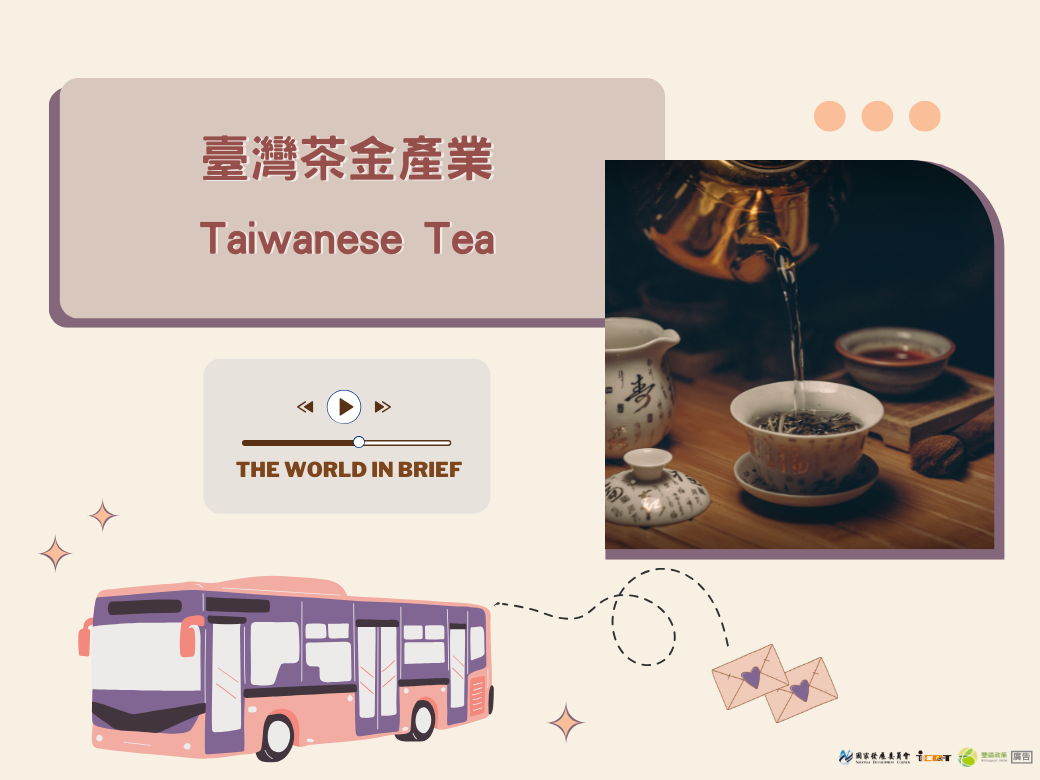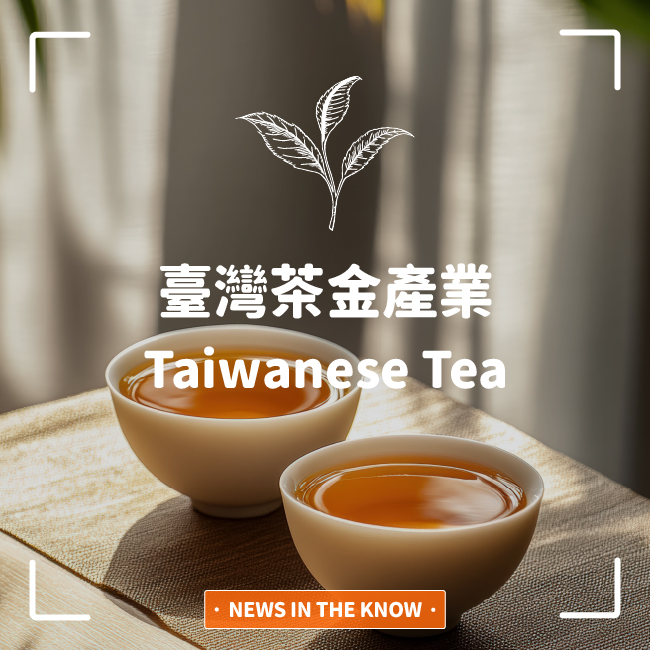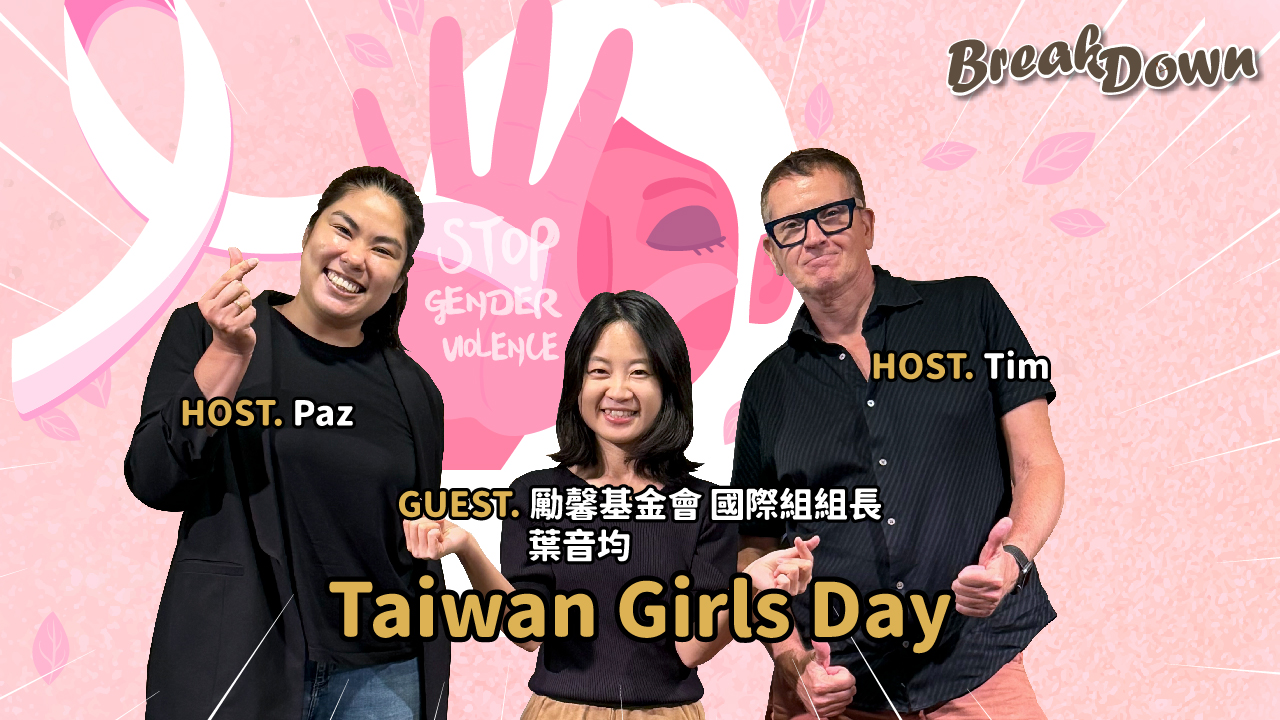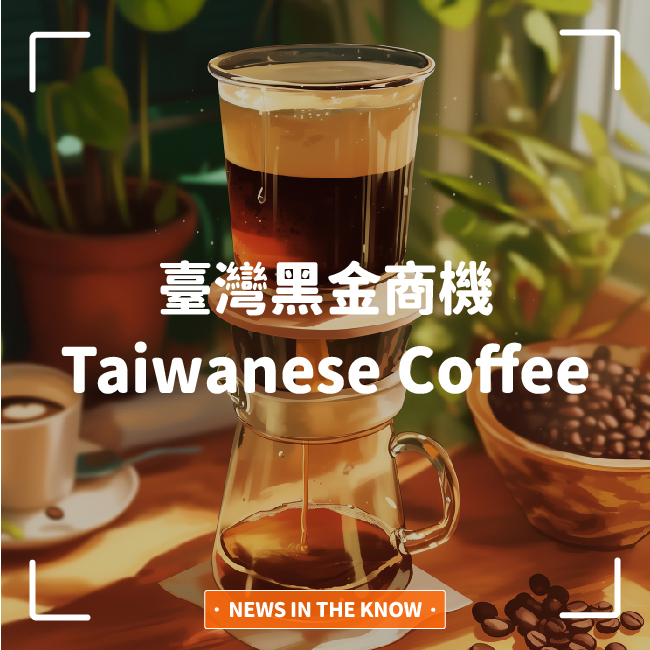3分鐘時事英語廣播 臺灣茶金產業:文化的歷史與其發展
Taiwanese Tea: The History and Development of the Culture
2024/10/16 09:32:54 CEFR B1-B2 每周廣播

國發會與ICRT共同製播的時事英語廣播“The World in Brief”固定於每周三在雙語資源網更新,與大家一起聽時事學英文。
本周主題:臺灣茶金產業 Taiwanese Tea
臺灣的烏龍茶為世界最好的之一,特別之處在於結合了氣候、海拔與傳統工藝。而臺灣的茶文化始於17世紀,開始盛行的時期為19世紀的清朝時代,隨著英國對茶葉的需求增加,阿里山與日月潭等地區的茶葉開始蓬勃發展,大稻埕也成為出口茶葉的主要港口。日治時期,則引進了新的農業技術並改善品質控制,將茶葉生產現代化。現今隨處可見的傳統茶館和時尚茶店,為古今最好的融合。想知道更多嗎?讓我們用3分鐘一起跟著主持人了解更多吧!
您喜歡這則時事英語廣播嗎?進入表單與我們分享您對The World in Brief的喜好與看法吧!
Transcript
Voice: You’re listening to the World in Brief …
Crowd: … On tour!
Sean: ‘Dear ICRT, what is the history of Taiwanese tea?’
Host: Sean in Xinzhuang wants to know about one of Taiwan’s favorite drinks. Let’s go!
Host: We’re in a Taiwan teahouse. This is delicious!
Expert: Isn’t it? Taiwan has such a rich tea culture. Its history is fascinating.
Host: Tell me all about it!
Expert: It started in the 17th century when the Dutch and the Spanish began establishing trade here.
Host: The Dutch? I didn’t know they were involved in Taiwan’s tea trade!
Expert: Long before the Dutch arrived in the 17th century, there were records of tea cultivation in Taiwan.
Host: Interesting!
Expert: Initially, tea wasn’t popular among the indigenous peoples. But by the 19th century, it became a significant crop, especially with the rise of the Qing dynasty. The British were looking for high-quality tea, and Taiwan's conditions were perfect for it.
Host: So that’s when Taiwan really became known for its tea?
Expert: Exactly! By the 1860s, tea production boomed, particularly in regions like Alishan and Sun Moon Lake. Taiwanese tea, especially oolong, began to gain a reputation for its unique flavor. Dadaocheng in Taipei was very important then. It was the main port for exporting tea worldwide.
Host: I’ve heard that Taiwanese oolong is some of the best in the world. What makes it so special?
Expert: It’s the combination of climate, altitude, and traditional craftsmanship. The high mountains provide misty conditions and rich soil, which enhances the tea’s flavor. Plus, our tea artisans have honed their skills over generations.
Host: That sounds incredible! I imagine the Japanese colonization also impacted tea culture, right?
Expert: Definitely. During the Japanese rule, tea production was modernized. They introduced new farming techniques and improved quality control, which helped establish Taiwan as a major tea exporter.
Host: And I bet that influenced the variety of teas produced here?
Expert: For sure! They helped develop unique teas like Baozhong and the famous Sun Moon Lake Black Tea.
Host: This makes me appreciate my tea even more! So, how has the tea culture evolved in recent years?
Expert: There’s been a resurgence of interest in traditional tea practices recently. Younger generations are embracing the art of tea, blending modern methods with age-old traditions. You’ll find both traditional teahouses and trendy tea shops everywhere.
Host: It’s amazing how tea continues to adapt! I love that it’s not just a drink but part of Taiwan’s identity.
Expert: Tea is more than just a beverage here; it symbolizes hospitality and connection. Sharing a cup of tea can forge friendships and strengthen bonds.
Host: I can see that! Thank you for sharing this rich history with me. I can’t wait to share it with Sean in Xinzhuang too.
Expert: My pleasure! Enjoying tea is about savoring the moment.
Both: Cheers to tea!
Host: Bye, and thanks again!
Vocabulary
hospitality (n.) 熱情好客、友好
When the couple visited their friend in Taiwan, she showed them hospitality with an invitation to a beautiful traditional Taiwanese teahouse, where she poured tea for them.
forge (v.) (尤指努力地)製造,生産、開創
The early foreign merchants visiting Taiwan forged agreements on tea cultivation and trade despite language barriers and cultural differences.



